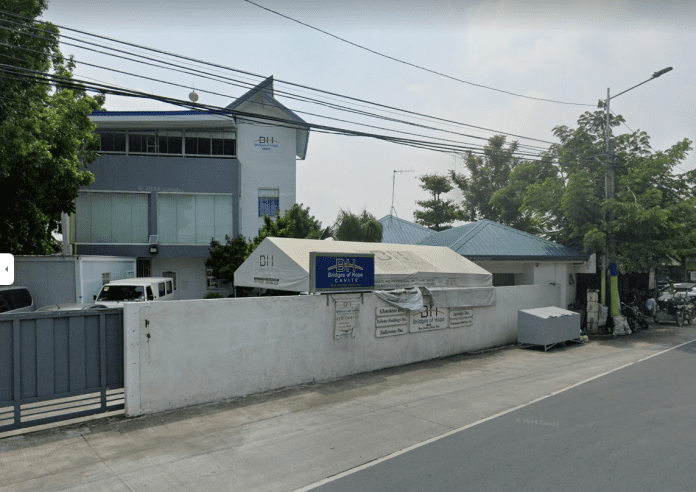This is my reflection paper on my 2024 Student’s Week participation. Uploaded for archival purposes.
Despite the various events offered by the DLSU-D community during the 2024 Student’s Week, I admit that I struggled to attend and participate actively due to my busy work schedule. However, on the last day of the week-long event, I stumbled upon a very interesting event organized by the DLSU-D Pre-Medical Society (DPMS) — Beyond the Buzz: 𝐀 𝐑𝐞𝐚𝐥 𝐓𝐚𝐥𝐤 𝐨𝐧 𝐀𝐧𝐭𝐢-𝐃𝐫𝐮𝐠 𝐂𝐡𝐨𝐢𝐜𝐞𝐬, 𝐒𝐭𝐢𝐠𝐦𝐚, 𝐚𝐧𝐝 𝐂𝐨𝐧𝐬𝐞𝐪𝐮𝐞𝐧𝐜𝐞𝐬—a webinar focused on the topic of dependence, stigmas, and consequences of illegal drug use. I quickly signed up for the webinar and decided not to create pre-interview questions because I wanted to ask things related to what they would share with us.
Speakers from the Bridges of Hope Imus, a local rehabilitation center in Cavite, were invited to give their insights to hundreds of students from different colleges on the causes and effects of drug use. I learned another term for rehabilitated drug dependents, which is called ‘recoverees’: that’s what the three speakers, Dominic John Galeon, Reuben Santos, and Pierce John Hilario, called themselves. All of them were previous drug users who were treated at the Bridges of Hope and are now part of the rehabilitation center’s roster of staff.
Galeon, who’s also a Senior Editor at the Manila Bulletin, shared the so-called ‘power of choice’ – believing that no one was forced to become a drug user and that all of the circumstances leading to an individual’s addiction are their own choice. According to him, most drug addicts started with tikim-tikim with the combination of peer pressure from their circles. Some dependents also feel that they need a hit of illegal drugs to stay functional at work.
He highlighted the power of choice to stay away from illegal drugs, saying that anyone can set their boundaries and refuse any attempts to take narcotics. Galeon believed that it would be the best choice not to take any illegal drugs at all because of the chance of getting addicted to them, even if it’s their first time trying it.
Galeon believed that the greatest solution to fighting illegal drugs is to speak with their family and friends. He recognized that some drug dependents are afraid to be misunderstood and judged when they try to open up about their vice, but he is encouraging everyone to try communicating with their loved ones: “wala namang mawawala,” as he said.
The second speaker, Pierce John Hilario, the program director of Bridges of Hope Imus, talked about the stigmas surrounding the present and previous drug dependents. Hilario shared that he grew up in a family of drug addicts, which made him ignore the stigmas and even believe that the illegal use of narcotics was normal. However, stigmas, which he described as a ‘mark of shame or disgrace’ for drug dependents, started to come up, which prompted him to undergo rehabilitation.
He admitted that the rehabilitation process was not easy but worth it, as he proved that even people like him still had the chance to change for the better. Hilario shared that educating yourself, promoting empathy, and focusing on recovery would remove the stigma. They also told the attendees that Bridges of Hope not only educates the dependent but also their family, as the actions of people close to them can trigger addicts.
The last speaker, Reuben Santos, who’s been a heavy user of illegal drugs for 20 years, shared the short-term and long-term consequences of his previous vice. He almost died because of severe withdrawal while attempting to stop his addiction and also experienced hallucinations and cognitive impairment due to his use of illegal drugs. However, what’s more painful was the irreversible strained relationships caused by his drug use, including his separation from his wife and children.
Because of my curiosity to dig deeper, I asked four questions during the webinar. First, I asked Mr. Galeon if he would agree to illegalize or make it harder for anyone to acquire alcoholic drinks as he compared it to illegal drugs. He responded by saying that alcoholic drinks also altered the brains of their consumers and suggested that people should stop trying them.
The second question I asked was about Mr. Hilario. I inquired how they handle people who don’t want to be rehabilitated because of the horror stories they heard in the process of rehabilitation but are forced to because of their families. He admitted that he was also pissed when his family brought him to the rehabilitation center, but at the same time, he believed that it would be better for someone to be forced to undergo rehabilitation than do nothing. He cited that his family made the first step to the recovery, and he threaded the rest of the journey.
For the last question, I asked Mr. Santos about the long-lasting consequences of illegal drugs. As he responded, he clarified that physical and cognitive consequences could be reversed by rehabilitation, but the natural, long-lasting effect of their former vice was the stigma, saying that many people would still judge them due to the possibility of having a relapse.
Other staff of the Bridges of Hope also joined the discussion, reiterating that no one should consume alcohol. They also said choosing the right rehabilitation is important to avoid the horror stories I mentioned. Stigmas also could only be removed by those people who created them – the drug addicts themselves.
I also asked for their opinions on the proposed legalization of Medical Cannabis, saying that they oppose the bill because it is prone to abuse. They believed that anyone with the right connection could use medical cannabis as a loophole to use it recreationally. The speakers also highlighted the bad effects of cannabis, which helped me to get a different perspective on the legalization of Marijuana in the country.
Overall, the event was full of sensible discussion, and I learned a lot from it. I am looking forward to attending more webinars about societal issues.

